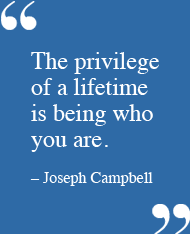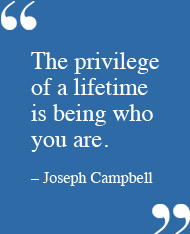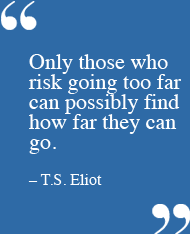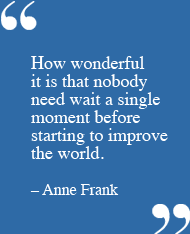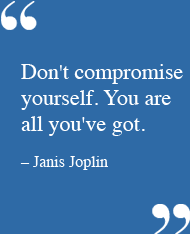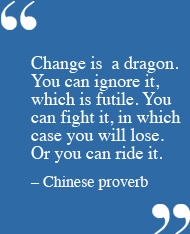How to Close the Gender Gap for Entrepreneurs
Make room for motherhood and stop thinking the old way are two of the 11 recommendations in this article. There is also an infographic that just might topple your old assumptions about women business owners – all 8 million of them!
Journal Reports: Small Business
How to Close the Startup Gender Gap
An Expert Panel Looks at How to Build Women's Presence in the Entrepreneurship World
There's a huge gender imbalance in the entrepreneurship world. For all the strides women have made in launching startups and driving the economy forward, they face persistent obstacles that hamper their progress—as documented in a recent Senate committee report that shows how far women lag behind men in areas like access to capital.
The problem, many say, is especially pronounced in high tech, a field that promises perhaps the biggest rewards for entrepreneurs but where many women say they feel unwelcome.
For an inside look at the situation—and to lay out potential solutions—we turned to The Accelerators, the startup mentors who discuss launching businesses. Below are edited excerpts of their essays. You can read their full answers, and more responses, here.
Stop Thinking the Old Way
After 16 years of working with entrepreneurs and sitting on tech boards, I realize the underrepresentation of women in tech is not just about the pipeline. Often, early-stage investors need to make decisions about whether to invest in a startup before there are much data on the company's performance, so they rely on "pattern recognition"—assumptions about the type of founders and executives that build successful tech-driven businesses.
Today, there are many examples of successful women founders and executives of tech companies. Despite the success of these trailblazers, many investors still suffer the unintended consequences of pattern recognition when it comes to deciding which businesses and teams to back: Founder(s) must be computer-science majors or, better yet, dropouts…oh, and they are male.
— Theresia Gouw is co-founder of Aspect Ventures , an investment firm that makes seed and Series A investments in mobile, consumer Internet, enterprise, SaaS and health-care IT.
It's Tough Being a CEO. Period.
When people ask me, "So, what's it like to be CEO?", most of them are actually asking me, "So, what's it like to be a CEO and a girl?" And they often expect me to tell them how difficult it is. That's what people want to read and hear, but this is just not how I feel.
Of course, there are some drawbacks of being a female CEO. When you're a woman in charge, you do have to work a bit more to get credibility and have people listen to you; it might be harder to recruit developers and make them trust you; and you will end up going to a few sales meetings where the other person is more interested in you than in your product.
There are also some pretty good advantages. It's sometimes easier to get press coverage, and sales can happen faster. People will usually be keener on lending a hand. And I'm not even talking about all the help I got from fellow female entrepreneurs, especially when I was trying to get things off the ground.
But those pros and cons are just minor details. They don't make or break a company. The hard part is to ship a product people love, meet growth goals and get money in the bank. My point is: It's tough being a CEO, period. Male or female. We each get our own advantages and drawbacks, and we should all try to play the best out of the cards we've been dealt. I would just recommend not overplaying the "woman" card, as it can backfire. You want people to picture you as the CEO, not as the "woman CEO."
We need female CEOs because women are as talented as men can be, and it takes talented people to build great companies. For me, that's the only valuable reason.
— Mathilde Collin is co-founder and CEO of Frontapp, a collaborative email app.
Make Room for Motherhood
I am not just a woman in technology. I am a mother working on a technology startup. I have two full-time jobs: being a mother and an entrepreneur. I embrace this exhausting lifestyle because I love being a mother and I love my work in tech. I realized I cannot play the game according to the status quo. Namely, I cannot pull all-nighters at work. I cannot go to networking events starting at 8:30 p.m. regularly. I have to be flexible to stay home when my daughter is sick and my baby sitter is unavailable. I cannot travel across country on short notice. I cannot dump my family for my work.
I decided I need to prioritize and focus on making my work shine. I give 50 hours per week for work. I need laser focus and can only spend energy on things that matter, things that will yield results. I outsourced the majority of household and child-care responsibilities to a baby sitter and housekeeper. My husband is also helpful and shares some of these responsibilities. I am still crunched on time, but it's tolerable.
If we want diversity in technology, we need companies that are empathetic of motherhood and make the effort to retain them when women have young children at home. We need companies to acknowledge that their employees do have a life outside of work while making important contributions to their company.
— Yun-Fang Juan is co-founder and CEO of Fundastic , a financing platform for small-business owners.
Why I'm Over the Woman Thing
My default has never been to view capacity or accomplishments through the prism of gender. I've encountered my fair share of inappropriate comments and behavior, but being female has never kept me from doing anything I've decided to pursue.
With few exceptions, though, I'm usually the token female on angel investor and entrepreneurship panels. Tech events are the only ones where there's no line for the women's rest room, but a 10-minute wait for the men's. A female startup CEO launching something other than a fashion or beauty brand is considered front-page news. I have an incredibly difficult time recruiting successful young women to join my angel group. I can name every prominent female venture capitalist from memory. It all frustrates me.
Fortunately, recent experience has made me optimistic that, in my lifetime, this will change. I think millennials will be the ones who change the game. We grew up with more gender parity in school, sports and jobs than any other generation. We value equality in a variety of spheres. We are globally oriented and pride ourselves on openness. Male or female, we expect our spouse to be an even partner. Those coming up behind us are the same, even more so.
— Christina Bechhold is co-founder of Empire Angels , a member-led, New York-based angel group of young professionals investing in early-stage technology ventures.
Find Ways to Collaborate
The gender imbalance in tech is a symptom of not prioritizing collaboration and not accessing all your resources, male or female, when accelerating business growth. It's up to the female founder to improve her company to vie for the market and investors' attention.
Leaders must prioritize collaboration as a way to diversify ideas and get the fittest strategies to be competitive in the market. Oftentimes, entrepreneurs identify financial capital as a mode to evaluate a company. But in the earlier stages of growth, I also evaluate the quality of their network. We must begin to ascribe a different type of "value" to the company, and that value is made up of relationships.
— Ari Horie is CEO and founder of Women's Startup Lab.
Listen to Different Voices
Throughout much of my company's history, we had a completely male-dominated team. No matter how strongly people disagreed, deep down we were approaching challenges and decisions from the same perspective.
All of this changed when we hired our first female team member. While she too had a strong technical background, she was able to approach decisions from a different perspective. Her background as a small-business owner aligned perfectly with that of our customers and stood in stark contrast to our backgrounds in finance and strategy. Soon, we found that we were having far more meaningful discussions and making more impactful decisions. Now when we hire, we look for candidates with perspectives that can challenge us to approach problems differently and think about our company in different ways.
— Chris Myers is co-founder and CEO of BodeTree, a Web application for small businesses.
***
Become Part of the Future
Women Who Code, a global nonprofit I direct, is part of the solution to inspire women to excel in technology careers. We provide an avenue into tech, teach women skills needed for professional advancement and provide environments where networking and mentorship are valued.
It's important for more women to start considering careers in science, technology, engineering, and mathematics, as these are seen as prestigious jobs, with high levels of compensation and the possibility for speedy advancement. Technology is the future and eventually every company will be a tech company, making it vital for women to start developing the skills needed for these positions.
— Alaina Percival is CEO of Women Who Code, a group dedicated to increasing the number of women working in technology.
Get Girls Interested Early
I don't think the impact of workplace culture can be overstated. Companies that enable or encourage frat-boy, bro-grammer antics actively alienate women.
But there's another side to this story. A major part of the reason there's a gender disparity in tech is that there are so few women applying for tech positions. By the time girls are in high school, tech has often already been ruled out as a career option.
Clearly, making headway on gender imbalance requires getting more girls interested in computer science at an earlier age. It involves rewriting perceptions of programming as a "boys' thing" and showing that rewarding careers await women as well.
— Ryan Holmes is founder and CEO of Hootsuite Media Inc., a cloud-based platform used by companies to manage their social media.
Change Can Start Anywhere
Change sprouts from surprising places. A few years ago, a friend told me about her startup's unlikely cultural evolution. It had outgrown a building that was run-down and embarrassing to show visitors. While planning the move, she and her colleagues wondered whether the new building could be more female friendly and compiled suggestions that included healthier food, bathrooms with hair dryers and keeping dirty dishes out of the sink.
After the first changes were approved, suddenly everyone wanted to help rethink the culture, too. Small bathroom suggestions gave way to a new communal area for town hall meetings, which led to a new tradition of get-togethers, which created a sense of ownership and a team that was excited to recommend their workplace to others. They started to attract a more diverse candidate pool, too.
Here are a few more actionable tips.
1) Attend demo days to recruit female engineers. By the time job fairs happen, many young women have opted out of science and engineering paths. However, most women haven't solidified their plans at the earlier demo days, and it just takes a gentle nudge to help them reconsider.
2) Separate presentation from talent in interviews. Young women interview differently than young men. I saw young men swiveling in office chairs, putting their feet on the desk and proclaiming their absolute confidence that they could solve any problem I put in front of them. Young women tended to be more composed. When I asked them to solve a problem, they'd be more likely say that they'd be happy to work together on the problem and to defer to input.
For an engineering role, you aren't looking for salesmanship. Behavioral questions and simulations are an interviewer's best evaluation methods for deciphering whether candidates have more talent than enthusiasm.
3) Help newcomers earn the respect of their team. Once you have diversity, you have to retain it. When a young, smart woman joined my team years ago, I directed her time to fixing bugs, developing code-base familiarity and small side projects. But engineering teams most value expertise and by grooming her as a generalist, I did her a disservice. She eventually left.
I wish I had said, "I want you to be the expert in this section of the code base. I'm giving you three weeks. Anyone who has a question will come to you afterwards."
She might have been initially petrified, but I'm confident she would have stepped up to the challenge.
— Elaine Wherry, who co-founded and served as chief experience officer of Meebo, a consumer Internet company that enabled users to chat, share and connect with their online friends, advises aspiring entrepreneurs and startups.
Move Beyond the "Boys' Club"
A few years ago, if you had asked me about Silicon Valley's gender imbalance, I would have wondered what planet you were from. I believed it was a perfect meritocracy that was open and diverse.
That was until I moved to Silicon Valley and started noticing the gender composition of technology companies. I learned that it was a boys' club. I have since researched the problem extensively and crowd-created a book about the challenges that women have faced and how they are surmounting them.
Things are changing for the better. There is outrage at the sexism that is coming to light in Silicon Valley; solutions are being discussed and implemented; women are beginning to help each other; and the venture-capital system is looking at itself critically and mending its ways.
— Vivek Wadhwa holds a number of academic positions and is vice president of academics and innovation at Singularity University .
Have an Even Split at the Start
Startups should decide from the very onset that they are going to have a 50/50 balance of men and women employees.
Five years ago, I started a conference with my co-founder, Nancy Hechinger, called the Women Entrepreneurs Festival at the ITP division of New York University. We celebrate and showcase women entrepreneurs. Women network differently. They run companies differently, and they think differently than men. We should applaud that. That is why having a balance of men and women in startups is one of the keys to success.
— Joanne Wilson , a startup investor and adviser in New York, is founder and co-chair of the Women Entrepreneurs Festival, chairperson of Hot Bread Kitchen and sits on the board of the High Line .

